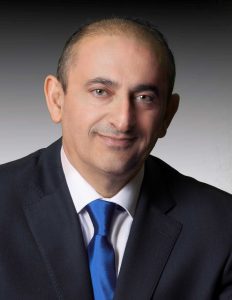On May 7, 2016, 40-year-old Joshua Brown and the car he had christened “Tessy” were traveling on a Florida highway when a big rig made a left-hand turn in front of the car. Tessy “went so fast through my trailer I didn’t see him,” said the truck driver afterward. The car and Brown came to rest about a quarter of a mile down the road when they struck a telephone pole. Media reports later indicated that Brown, a former Navy SEAL and technology consultant, believed in the ability of the autopilot so much that he had brought a portable DVD player into the car with him and was watching a “Harry Potter” movie at the time of the crash.
Brown’s family is grieving their loss, yet is expected to explore the possibility of filing a personal injury lawsuit against Tesla when the federal inquiry is completed. Through a family spokesperson, the surviving relatives have said that they hope the accident “will trigger further innovation which enhances the safety of everyone on the roadways.”
Should hands-off drivers be held liable?
The key question at the heart of this accident is whether Tesla or the drivers should be held liable for accidents that occur when cars are being “driven” on autopilot. Tesla has vigorously denied liability, stating that the automated technology for braking, lane changing, and steering doesn’t shift liability from the driver to the car company. Other experts have weighed in on the case, suggesting that Tesla might be held liable if it can be determined that the company failed to conduct adequate testing on the system. Reportedly, Brown lost his life because the autopilot system failed to detect the white rig against the bright sky.
Yet, Elon Musk, the founder of Tesla, has insisted that “The onus is on the pilot to make sure the autopilot is doing the right thing,” and that the autopilot mode is a voluntary feature.
Rosemary Shahan, president of the Consumers for Auto Reliability and Safety lobbying group, vehemently disagrees. She states, “On the one hand, they’re saying trust us, we can drive better than you would, but on the other hand, they are saying if something goes wrong, don’t ask us to stand behind our product. But if it’s controlled by an algorithm, why should you be liable?”
Exercising your legal rights after a crash
Whether an auto accident in Los Angeles was caused by a Tesla malfunction or otherwise, it’s imperative to seek counsel from an experienced Los Angeles auto accident lawyer as soon as possible. Deadlines do apply to filing a claim; if you fail to take action within this period of time, you can forfeit your right to file a personal injury lawsuit.
The Salamati Law Firm has provided effective and compassionate legal advocacy services to Los Angeles residents for 20 years. We’ve recovered million-dollar-plus settlements and verdicts for our clients and we work on a contingency basis, which means we never charge a legal fee unless we secure compensation for you. Call our office today at 888-259-4060 for more information. Our Los Angeles personal injury lawyers would like to extend an invitation to car and truck accident survivors to schedule a free, no-obligation case review.
Resources:
- Los Angeles Times, Tesla’s ‘autopilot mode’ puts it at risk for liability in crashes, http://www.latimes.com/business/technology/la-fi-tn-tesla-liabilty-20160705-snap-story.html
- Slate, The Tesla Autopilot Crash Victim Was Apparently Watching a Movie When He Died, http://www.slate.com/blogs/moneybox/2016/07/01/tesla_autopilot_crash_victim_joshua_brown_was_watching_a_movie_when_he_died.html
